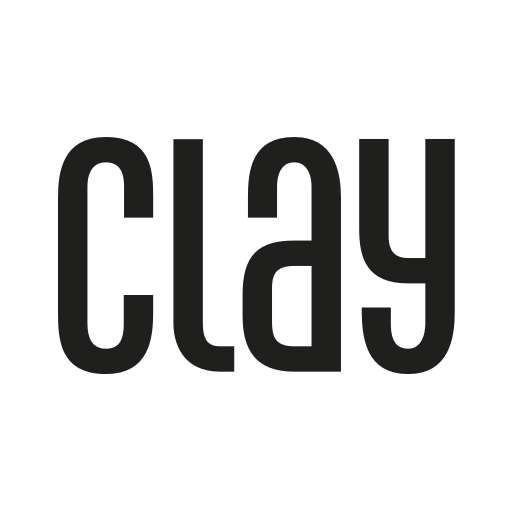In the world of networking and career development, informational interviews and coffee chats are invaluable tools. These casual yet purposeful meetings offer unique opportunities to gain insights, build relationships, and potentially open doors to new career paths. Whether you’re a recent graduate, considering a career change, or simply looking to expand your professional network, mastering the art of informational interviews and coffee chats can significantly boost your career prospects.
Understanding Informational Interviews and Coffee Chats
Before diving into strategies, let’s clarify what these meetings entail:
- Informational Interviews: These are typically more structured conversations where you seek information about a specific role, industry, or company from someone with relevant experience.
- Coffee Chats: These are usually more casual meetings, often used for general networking, mentorship, or building professional relationships.
Both serve the purpose of learning and connecting, but the key difference lies in the level of formality and specific focus.
Preparing for Your Meeting
The success of your informational interview or coffee chat largely depends on your preparation. Here’s how to get ready:
- Research Your Contact:
- Learn about their career path, current role, and company
- Look for common interests or connections
- Set Clear Objectives:
- Define what you want to learn from the meeting
- Prepare specific questions aligned with your goals
- Choose the Right Location:
- For coffee chats, suggest a quiet café conducive to conversation
- For virtual meetings, ensure you have a reliable internet connection and a professional background
- Prepare Your Elevator Pitch:
- Craft a concise introduction about yourself
- Highlight your background, interests, and career aspirations
During the Meeting: Best Practices
To make the most of your time together, follow these best practices:
1. Start with a Strong Introduction
- Begin with your prepared elevator pitch
- Express gratitude for their time
2. Ask Thoughtful Questions
Some examples include:
- “What does a typical day in your role look like?”
- “What skills are most valuable in your industry?”
- “How did you transition into this field?”
- “What challenges is your industry currently facing?”
3. Practice Active Listening
- Show genuine interest in their responses
- Take notes (but maintain eye contact)
- Ask follow-up questions based on their answers
4. Share About Yourself Strategically
- Relate their insights to your own experiences or goals
- Highlight your relevant skills or projects, but avoid turning it into a job interview
5. Be Mindful of Time
- Stick to the agreed-upon duration (usually 20-30 minutes)
- Watch for cues that the conversation is wrapping up
6. End on a Positive Note
- Thank them again for their time and insights
- Ask if they can suggest other contacts who might be helpful
After the Meeting: Follow-Up and Relationship Building
The actions you take after the meeting are crucial for building a lasting professional relationship:
- Send a Thank You Note:
- Email a personalized thank you within 24 hours
- Reference specific insights or advice they shared
- Connect on LinkedIn:
- Send a connection request with a personalized message
- Engage with their content regularly
- Follow Through on Any Commitments:
- If you promised to send an article or make an introduction, do so promptly
- Keep Them Updated:
- Share how you’ve applied their advice
- Update them on your career progress
- Offer Value in Return:
- Share relevant articles or opportunities
- Offer your assistance if they ever need it
Leveraging Technology for Effective Follow-Up
In today’s digital age, managing your network effectively is crucial. This is where a personal CRM (Customer Relationship Management) tool like Clay can be incredibly valuable. With Clay, you can:
- Store detailed notes from your informational interviews and coffee chats
- Set reminders for follow-ups and check-ins
- Track your interactions over time
- Organize contacts based on industry, role, or potential opportunities
Using a tool like Clay ensures that you can nurture these valuable connections long-term, maximizing the benefits of your networking efforts.
Common Pitfalls to Avoid
To ensure your informational interviews and coffee chats are successful, steer clear of these common mistakes:
- Asking for a Job: Remember, the primary purpose is to gather information and build a relationship, not to secure employment.
- Dominating the Conversation: Let your contact do most of the talking.
- Being Unprepared: Always come with thoughtful, researched questions.
- Neglecting Follow-Up: Failing to follow up can negate the benefits of the meeting.
- Over-Staying Your Welcome: Respect the time limit you agreed upon.
Turning Insights into Action
The true value of informational interviews and coffee chats lies in how you apply the insights gained:
- Reflect on the Conversation:
- What new perspectives did you gain?
- How does this information align with your career goals?
- Update Your Career Plan:
- Adjust your goals or strategies based on new insights
- Identify skills you need to develop
- Expand Your Network:
- Reach out to suggested contacts
- Look for opportunities to attend industry events mentioned
- Refine Your Approach:
- Use the feedback to improve your pitches or interview skills
- Adjust your questions for future meetings based on what was most insightful
Conclusion
Informational interviews and coffee chats are powerful tools in your career development arsenal. They offer unique opportunities to gain insider knowledge, build meaningful professional relationships, and potentially uncover hidden job opportunities. By approaching these meetings with preparation, genuine curiosity, and strategic follow-up, you can significantly expand your professional network and gain valuable insights to guide your career decisions.
Remember, the key to success lies not just in the meeting itself, but in the relationships you build and maintain over time. Leverage tools like Clay to keep track of these valuable connections and ensure you’re nurturing your network effectively. With practice and persistence, you’ll find that these informal conversations can lead to some of the most impactful opportunities in your career journey.

